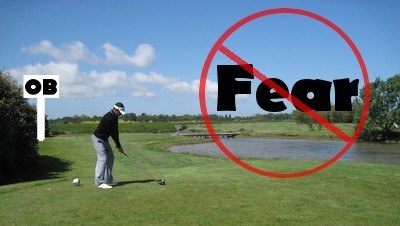Fear is a common factor that can affect golfers of all skill levels. It can arise from various sources, such as fear of failure, fear of making mistakes, fear of embarrassment, or fear of a specific shot or situation. The fear factor in golf can negatively impact a player's performance and enjoyment of the game. Here are some key points to understand and address the fear factor in golf:
- Identify the source of fear: Understanding what specifically triggers fear in your golf game is an essential first step. Is it the pressure of competition, a specific shot over water, or the fear of missing a crucial putt? Identifying the source can help you address it more effectively.
- Manage expectations: Unrealistic expectations can contribute to fear and anxiety on the golf course. Set realistic goals and remember that golf is a challenging game. Accept that mistakes and setbacks are part of the process and focus on learning and improving rather than solely on outcomes.
- Develop a positive mindset: Cultivating a positive mindset is crucial in managing fear. Focus on positive aspects of your game, such as past successes, good shots, and your abilities. Replace negative thoughts with positive affirmations and visualize successful outcomes to build confidence.
- Practice under pressure: Introduce pressure situations in your practice routine to simulate on-course scenarios. Create practice games or challenges that mimic the situations that cause fear. Gradually exposing yourself to these situations in a controlled environment can help build confidence and reduce fear.
- Utilize relaxation techniques: Deep breathing, visualization, and progressive muscle relaxation techniques can help you relax and stay focused during moments of fear and anxiety. Practice these techniques during practice sessions and incorporate them into your pre-shot routine.
- Seek support and guidance: If fear continues to impact your game, consider seeking guidance from a golf coach or sports psychologist who specializes in golf. They can provide techniques, strategies, and mental tools to help you manage fear effectively.
- Reframe fear as excitement: Instead of perceiving fear as a negative emotion, reframe it as excitement. Recognize that the adrenaline rush you feel in pressure situations can actually enhance your performance. Embrace the challenge and channel the energy positively into your game.
Remember that managing fear in golf is an ongoing process that requires patience and practice. It's important to be kind to yourself, stay persistent, and approach each round with a positive and growth-oriented mindset. With time and effort, you can learn to manage fear effectively and enjoy the game to its fullest.
- Q: What is the fear factor in golf? A: The fear factor in golf refers to the anxiety and apprehension that golfers may experience when facing challenging shots or high-pressure situations on the course.
- Q: What are common situations that trigger fear in golfers? A: Fear may arise when facing difficult shots over water, navigating narrow fairways, or attempting critical shots during competitive rounds.
- Q: How does fear affect a golfer's performance? A: Fear can lead to tense muscles, overthinking, and poor decision-making, resulting in mishits and less successful shots.
- Q: Are professional golfers immune to the fear factor? A: No, even professional golfers experience fear in high-stakes situations. The key is managing fear and maintaining focus.
- Q: How can fear impact a golfer's mental game? A: Fear can undermine a golfer's confidence and lead to negative self-talk, affecting their mental resilience on the course.
- Q: What strategies can golfers use to overcome fear? A: Techniques like deep breathing, visualization, and positive affirmations can help golfers manage fear and stay focused.
- Q: Can fear affect golfers' physical abilities? A: Yes, fear-induced tension can restrict the golfer's range of motion, leading to reduced swing speed and accuracy.
- Q: Are there specific drills to desensitize golfers to fear? A: Practicing challenging shots repeatedly can help desensitize golfers to fear and build confidence in handling such situations.
- Q: Can fear be beneficial in golf? A: While excessive fear is detrimental, a healthy level of fear can keep golfers focused and motivated to perform at their best.
- Q: How can golfers differentiate between healthy fear and debilitating fear? A: Healthy fear may sharpen focus, while debilitating fear causes anxiety and impairs decision-making. Seeking professional guidance can help address debilitating fear.
- Q: Does fear vary among golfers of different skill levels? A: Yes, less experienced golfers may feel more fear when confronted with challenging shots, whereas experienced players may manage it better.
- Q: Can fear be contagious in team golf events? A: Yes, in team events, one player's fear may influence the morale and performance of other team members.
- Q: Can a golfer's past experiences with fear affect their future performance? A: Yes, past negative experiences can create a fear cycle, where golfers anticipate failure in similar situations, impacting their confidence.
- Q: How can coaches help golfers address the fear factor? A: Coaches can employ sports psychology techniques, provide encouragement, and help golfers develop mental strategies to cope with fear.
- Q: Can fear be a sign of a golfer's passion for the game? A: Yes, fear can indicate that a golfer cares deeply about their performance and has a desire to succeed.
Addressing the fear factor in golf is crucial for unlocking a golfer's full potential. Recognizing and managing fear, along with mental conditioning and practice, can lead to improved performance and greater enjoyment of the game.





